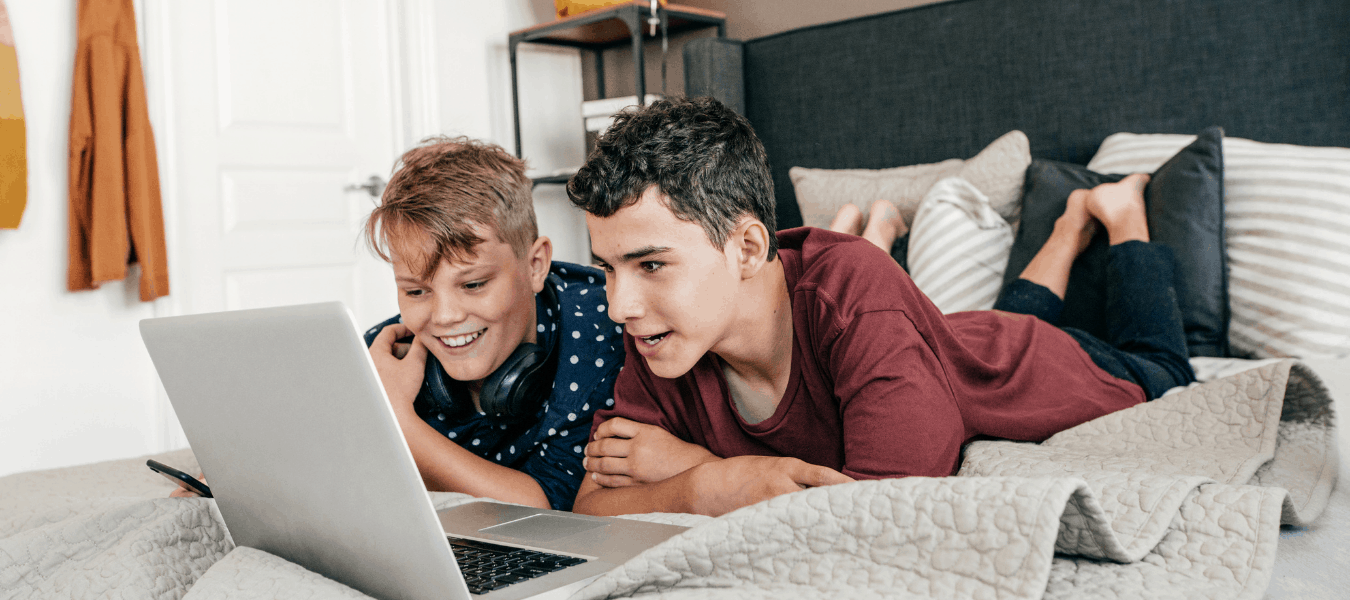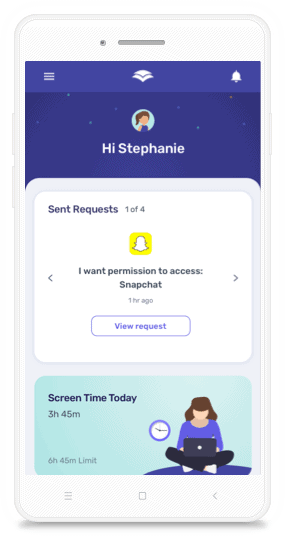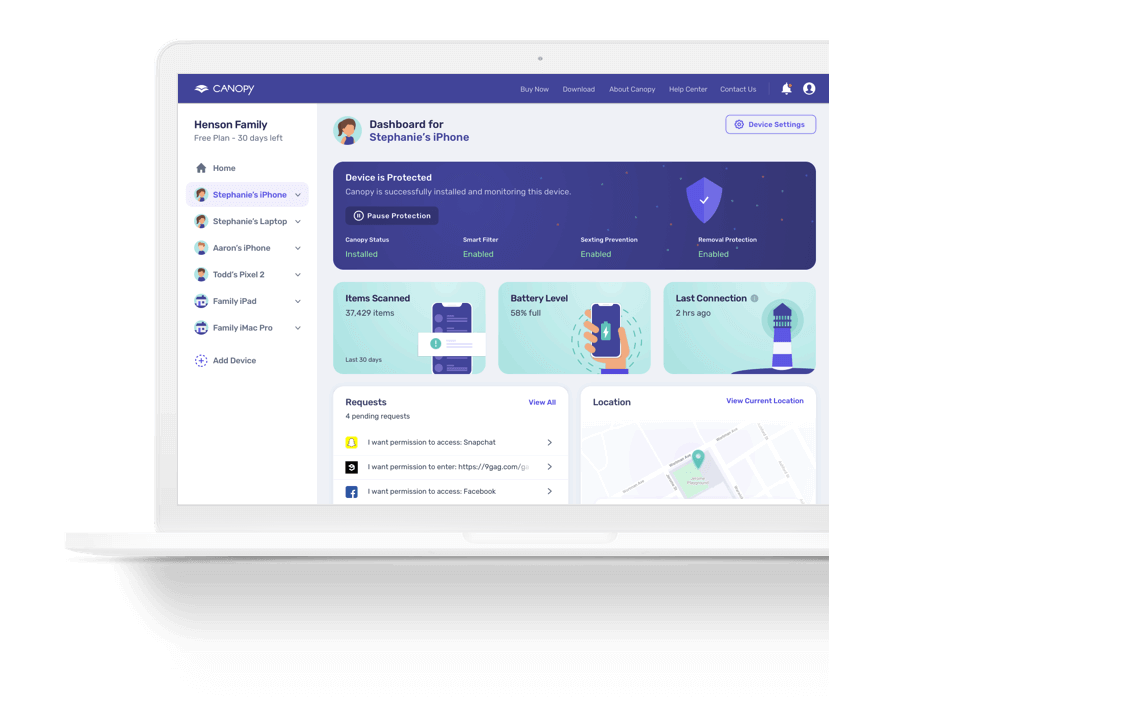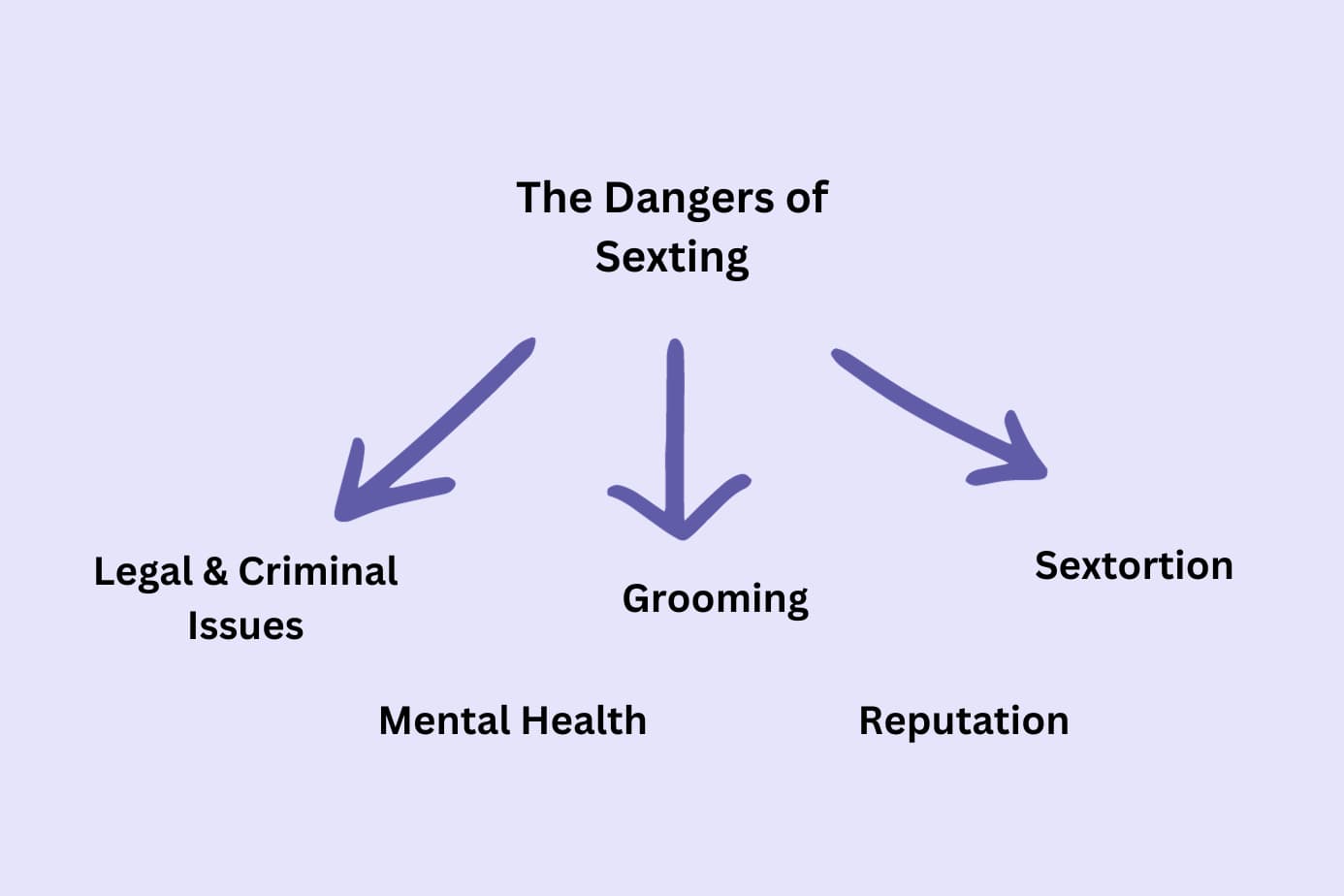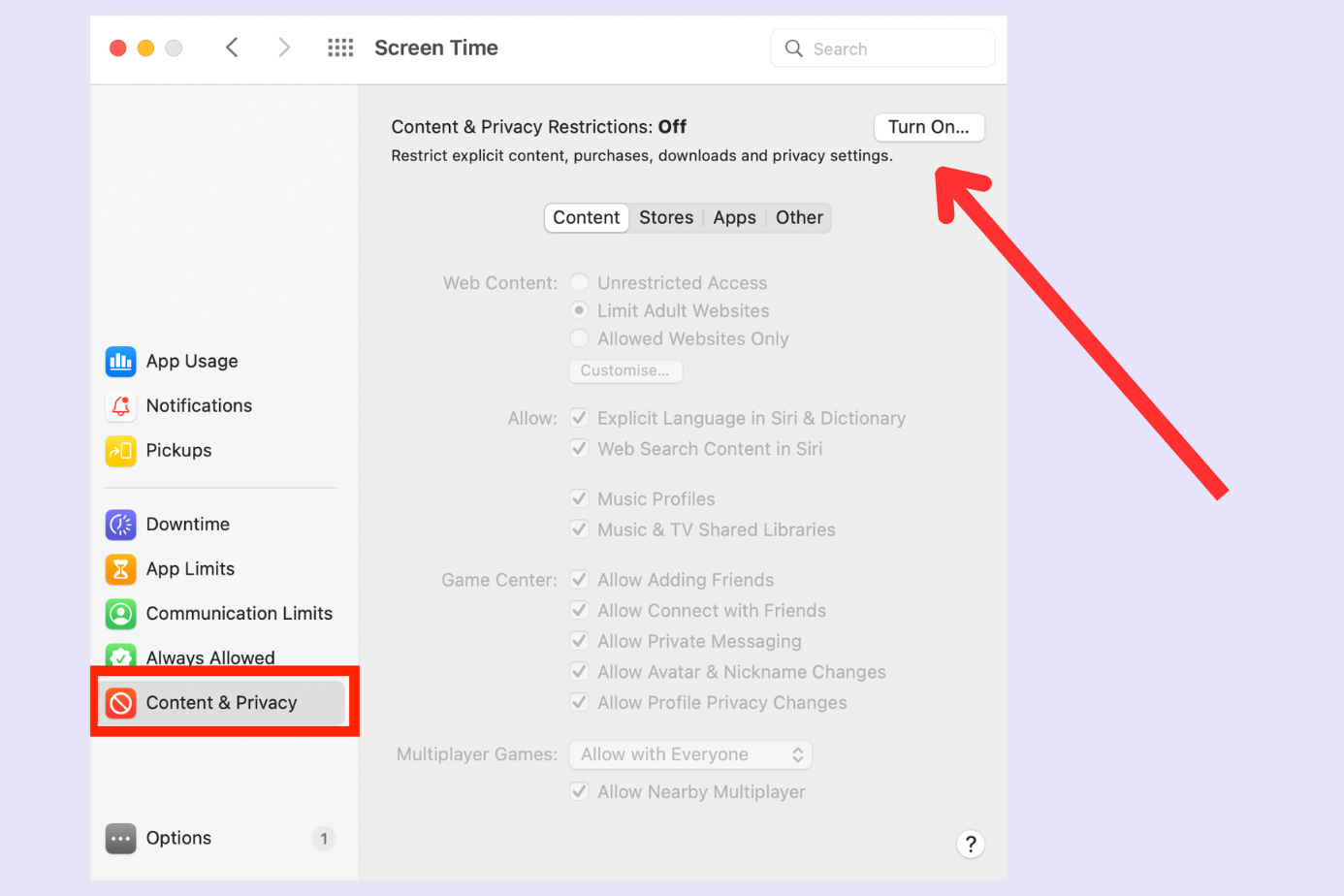Pornography is a topic that we rarely discuss because of the shame and stigma associated with it. We have all heard about the devastating impact that overexposure to porn can have on an individual. Pornography generates more internet traffic than anything else online, with 13 being the average age people watch porn for the first time.
Easy access to online pornography and consistent exposure can negatively affect children’s health and well-being. Children who use the internet regularly for classes, entertainment, and social networking are at high risk of exposure to pornography. If you’re worried about teens watching porn, now is the time to educate yourself and take preventive steps.
It is crucial for parents to be aware of the adverse effects of unwanted exposure to online pornography on children, and to know how to block porn before it gets out of hand. Tools like Canopy act as the best porn blocker for filtering and restricting explicit material on all devices.
What does porn do to the brain? Studies show that early exposure can deeply impact emotional and neurological development.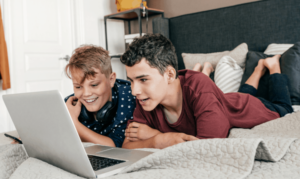
Related read: What Does Porn Do to Your Brain?
Consequences of Online Pornography on Children
Loss of innocence is not the only ill effect of pornography exposure on children. Here are some of the common effects of pornography on children –
- Psychological – Since children are not aware of the biological aspects of their body, sexual arousal due to viewing pornography can induce a sense of guilt and fear in the child. Exposure to sexual content before a child’s transition into adolescence can desensitize them to sex and induce them into sexual behavior from an early change.
- Physical – Pornography is like an addiction and causes similar effects to alcohol and drug. Several studies have shown that watching internet pornography can significantly reduce grey matter in the brain. Since a child’s brain is still developing, consumption of porn can lead to significant learning problems later in life, such as increased levels of self-objectification and body surveillance. Understanding the benefits of not watching porn may encourage a healthier development path.
- Social – Desensitisation of sex can cause the child to start objectifying human bodies no matter what gender. All these can lead to serious problems in porn in relationships. According to studies, exposure to pornography at a young age among heterosexual men can cause them to show power over women.
Signs of Pornographic Exposure in Children
The easy accessibility, anonymity, and affordability of online pornography make it difficult for parents or guardians to know if a child has been exposed to pornography. However, there are some common signs that may indicate that your child might be consuming pornographic material online –
- Withdrawal from interactions, over-sleeping, sleeplessness, and changes in eating habits.
- An excess curiosity of the child about genitals and sex.
- Child surfing the internet secretively, switching off tabs when an adult walks into the room, locking themselves inside the room.
- Removing parental filters and time tracking from their device.
- Increase internet usage during the night
- Sudden outbursts of fear, anger, and anxiety
- Use of inappropriate words which is unsuitable for their age
- Withdrawal symptoms when the internet is turned off
- Taking sexually explicit or suggestive images and sending them via text or online (i.e. sexting).
If you notice any of the signs above, you need to determine if they indicate internet addiction, cyberbullying, or pornography addiction. In all cases, understanding internet safety for kids is key. Knowing how to block porn on iPhone or how to block porn on Android helps you take real steps toward protecting your child with the right porn blocker in place.
Preventive Measures for Online Safety for Children
There are some steps that you can take to protect your child from online porn –
- Use high-quality porn-blocking tools on all devices. These can help block inappropriate sources and allow you to monitor your child’s device. For Apple users, setting up a Safari porn blocker can help eliminate risks from that browser.
- Enable privacy protection on the social media accounts of your child.
- Have an honest and open discussion of sex and relationships if your child is old enough.
- Oversee all apps installed by your child. There are apps that have aggressive adware and malware that can give them access to porn.
- Teach your child how to handle obscene messages and emails from other people online.
If your child has been exposed to accidental pornography material online, it’s important to deal with the problem maturely and be sure not to shame the child. An environment at home that exudes openness, love, and honesty can help protect your child from the impact of pornography on children.
Teaching Good Digital Health for children
Another way you can help protect your child online is by teaching them how to use technology safely and practice good digital health. Here are some things we can teach the younger generation –
- Digital Etiquette – We teach our kids to be polite and have basic manners when talking to others. As a parent you need to teach the same things when it comes to their online behavior. Digital etiquette can help children recognize and avoid cyberbullying. They also learn to spot it if it is happening to their friends. In addition, not every message requires an immediate response. Refraining from responding to messages is a skill that children today need to learn. Digital etiquette can help your child make a healthy relationship with others offline and online, decreasing the chances of feeling lonely or dejected.
- Digital Hygiene – Children using technology for long hours are more likely to feel anxious, depressed and lonely. Thus, setting certain limits or boundaries when it comes to the use of technology can help form a healthy relationship with tech. Parents need to set an example for their kids and work collaboratively with them to set rules, certain expectations and consequences. It allows kids to have a better understanding and even motivate them to follow the rules.
- Digital Safety – One important aspect of digital health is how a child can be safe online. No matter how mature your child might be, they may run into dangerous situations online that can put them at risk. Setting certain rules when it comes to online behavior, such as meeting someone they met online in real life or sharing their personal information with others online, can help them from falling into serious situations.
If you or your teen is already struggling with exposure, here’s how to quit porn forever using expert-backed strategies and tools that work.
If you’re looking for tools to help keep your family safe online, check out the Canopy Parental Control App. Canopy will filter and block inappropriate content across all devices, so you never have to worry about your kids seeing explicit content again.
Find out how it works.
